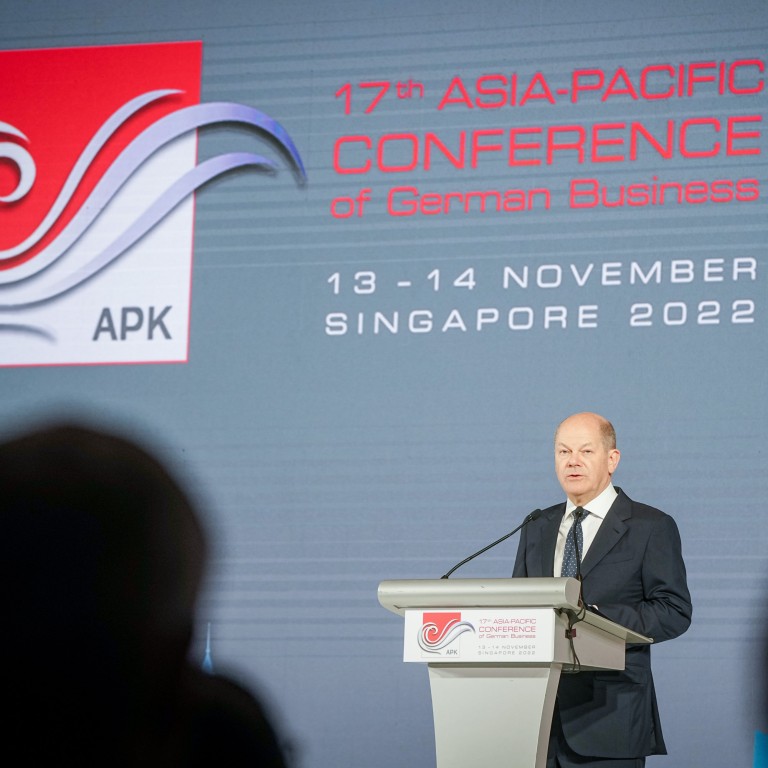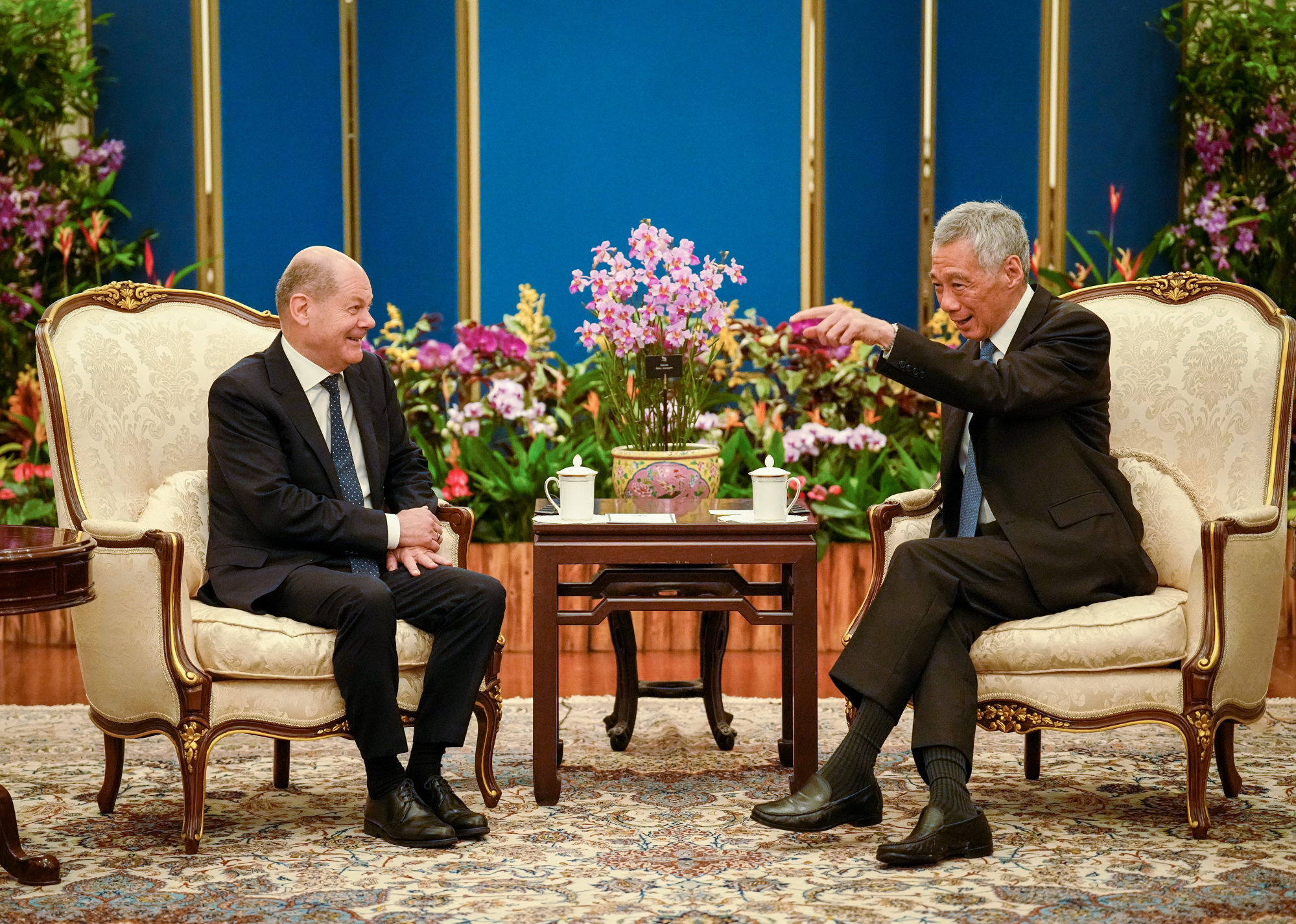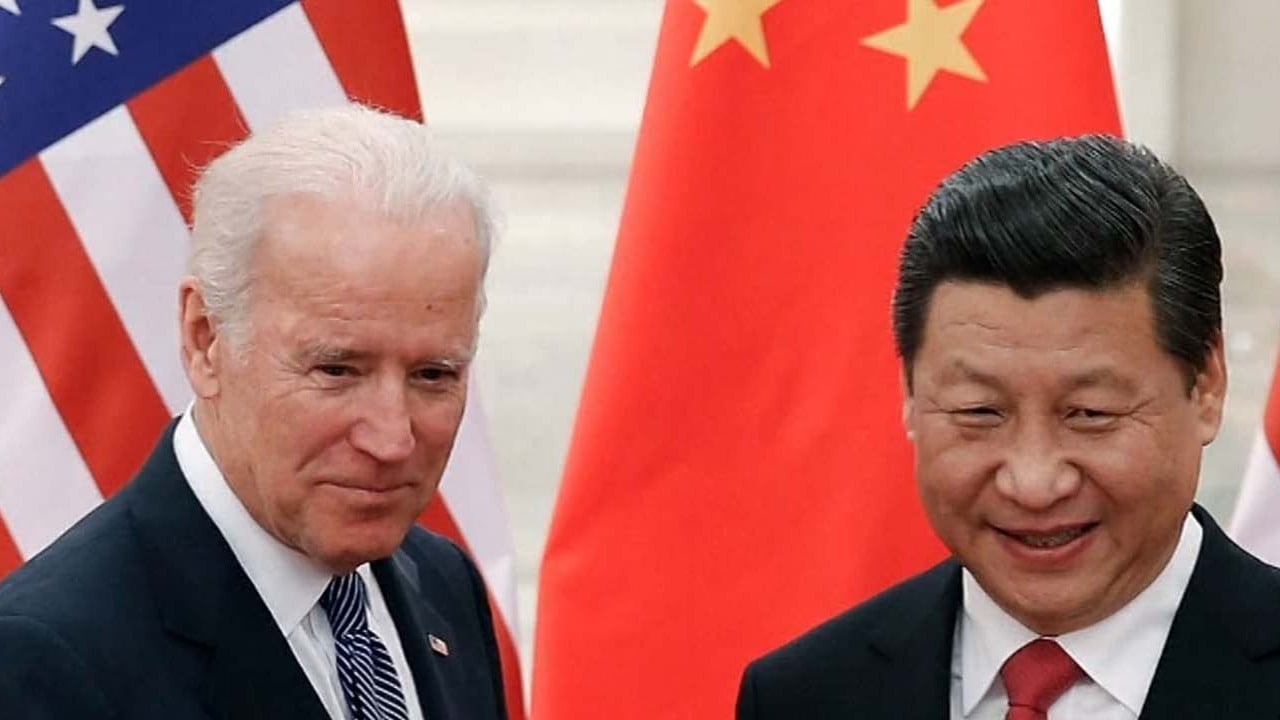
Germany’s trade, tech diversification ‘not China decoupling’, Chancellor Olaf Scholz says
- Diversification plan was part of a national security strategy that Scholz’s ruling coalition was formulating, he said at a conference in Singapore
- Scholz also suggested that it was unlikely the Bali G20 meeting would lead to a clear consensus on issues such as Russia’s war on Ukraine
“Diversification makes your businesses less vulnerable – and our economies more stable and secure,” Scholz told executives and policymakers at the Asia-Pacific Conference of German Business in Singapore.

“Diversification however doesn’t mean decoupling,” Scholz said. “That difference matters at a time when concepts such as near-shoring, deglobalisation and self-sufficiency are gaining traction.”
Asean leaders ‘unlikely’ to chastise Russia over Ukraine as summit season begins
“That’s going to be a tough ride, and I think it’s going to take up a lot of our time and efforts in Bali.”
He said the current moment was not the same as 2008, when the G20 grouping made “dramatic moves and saved the financial system and saved the world”.
“I do not expect any breakthrough on any of [the key issues]. I hope that there will be a consensus on most of them, on the general direction to move ahead,” Lee said, of the Bali meeting.
The opportunity for the Chinese and US leaders to get together – the first time they are meeting in person since Biden became president in 2021 – will “help us grapple with the issues, and I hope make progress”, Lee said.


